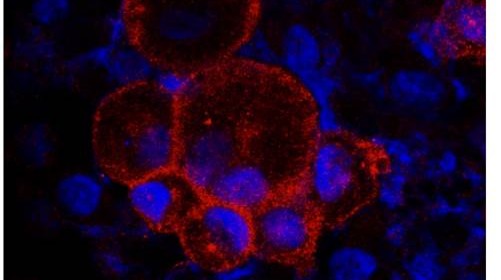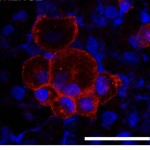
Immune System’s Impact on Chronic Obstructive Pulmonary Disease
Research at University of Cincinnati Medical Center suggests that the immune system may drive the disease progression in chronic obstructive pulmonary disease (COPD).
A preclinical study performed by UC pulmonary scientists identified a key link between cigarette smoke and the activation of a cellular receptor (NKG2D) on cytotoxic lymphocytes that is critical to immune system activation, which has important implications for the development and progression of chronic obstructive pulmonary disorder (COPD). Associate Professor of Internal Medicine Michael Borchers, PhD. is pursuing this novel finding made by his team in mice to explore the link between the immune system hyper responsiveness and COPD disease progression and severity in humans.1
For the study, Borchers’ team postulated that when lung tissue was damaged by smoke, the cells would signal the immune system targeting them for destruction.1 Using mice chronically exposed to cigarette smoke and lymphocytes and lung epithelial cells isolated from them, they examined molecular signaling pathways that were activated upon exposure to cigarette smoke and found a strong correlation between cellular stress signals, activation of the immune system and development of COPD-like disease.1
Pulmonologists have long been aware of the paradoxical hypothesis that cigarette smoke can activate, rather than suppress, certain elements of immune system function. The data in this study and others may prove key to understanding COPD disease progression and developing future interventional drug therapies. “In the future, physicians might screen COPD patients with frequent exacerbations or rapid decline in lung function, to identify those with hyper reactive lymphocyte populations that contribute to the pathogenesis of the disorder,” states Borchers. “Patients found to have unusually active NKG2D receptors on their cytotoxic lymphocytes could potentially benefit from treatment with existing medications to reduce harmful exacerbations of their COPD,” he continues.
Currently, Borchers’ team is conducting a Veteran’s Administration-funded study of more than 400 patients to examine the immune function in various groups according to their smoking status and COPD diagnosis. This will be the most comprehensive human study of immune mediated disease progression in COPD to date, and data is expected to be available within the next 18 months. “The most important lesson from our research is that not all COPD patients are the same –immune responses vary by individual, and different specific receptors are activated when faced with different pathogens and exposures,” says Borchers. Transitioning from murine to human research has been challenging, in part because the assays required are complex and expensive. However, patients with both hypo- and hyper-reactive immune systems may have similar presentations, making it even more important to determine the nature and direction of specific immune pathways being engaged on an individual basis.
Reference: 1. Borchers MT, Wesselkamper SC, Curull V, Ramirez-Sarmiento A, Sánchez-Font A, Garcia-Aymerich J et al. Sustained CTL activation by murine pulmonary epithelial cells promotes the development of COPD-like disease. J Clin Invest. 2009 Mar;119(3):636-49.
Michael Borchers, PhD
Associate Professor, Department of Internal Medicine
(513) 558-1027
michael.borchers@uc.edu


